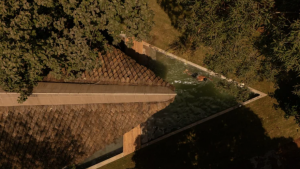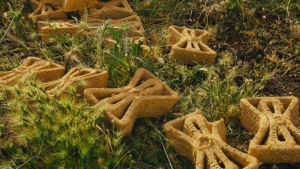The World Building of the Year is Huizhen High School in China, designed by Approach Design Studio and Zhejiang University of Technology Engineering Design Group. Located in Jiangbei District, Ningbo City, Huizhen’s campus is a ‘floating forest’, with classrooms hung in each corner, joined by meandering paths alongside scattered treehouses that provide students with temporary escape. A ramp leads to a rooftop area that doubles as a park and open-air lecture hall.
The annual World Architecture Festival is an international event that celebrates the most innovative architectural projects – completed and future – around the world. This year’s theme was ‘Catalyst’, and explored how architecture and design can be used as catalysts for positive change.
Explaining their design, the architects of Huizhen said, ‘The increasingly scarce urban space, rapidly growing student population and high pressure for further education have determined the “efficiency-first” principle of urban campus construction. While efficiency is certainly important, we believe that under heavy pressure, children need more blank spaces where time can be “wasted” and where they can adjust their minds and bodies and discover beauty.’
The other winners in the four overall categories were The Probiotic Tower by Design and More International in Egypt for Future Project of the Year, 19 Waterloo Street by SJB in Australia for Interior of the Year, and Benjakitti Forest Park by Turenscape with Arsomsilp Community and Environment Architect in Thailand for Landscape of the Year.
Lapalala Wilderness School in the Waterberg Biosphere in Limpopo won joint second place and a ‘highly commended’ award for its education centre, designed by South African architecture and urbanism practice Local Studio, noteworthy for its locally driven materiality of rammed earth, rock and timber.
The annual World Architecture Festival took place between 29 November and 1 December 2023 at a resort in Singapore. This year’s jury consisted of more than 140 industry experts from 43 countries, including Design Indaba alum architect Issa Diabaté.
Read more







